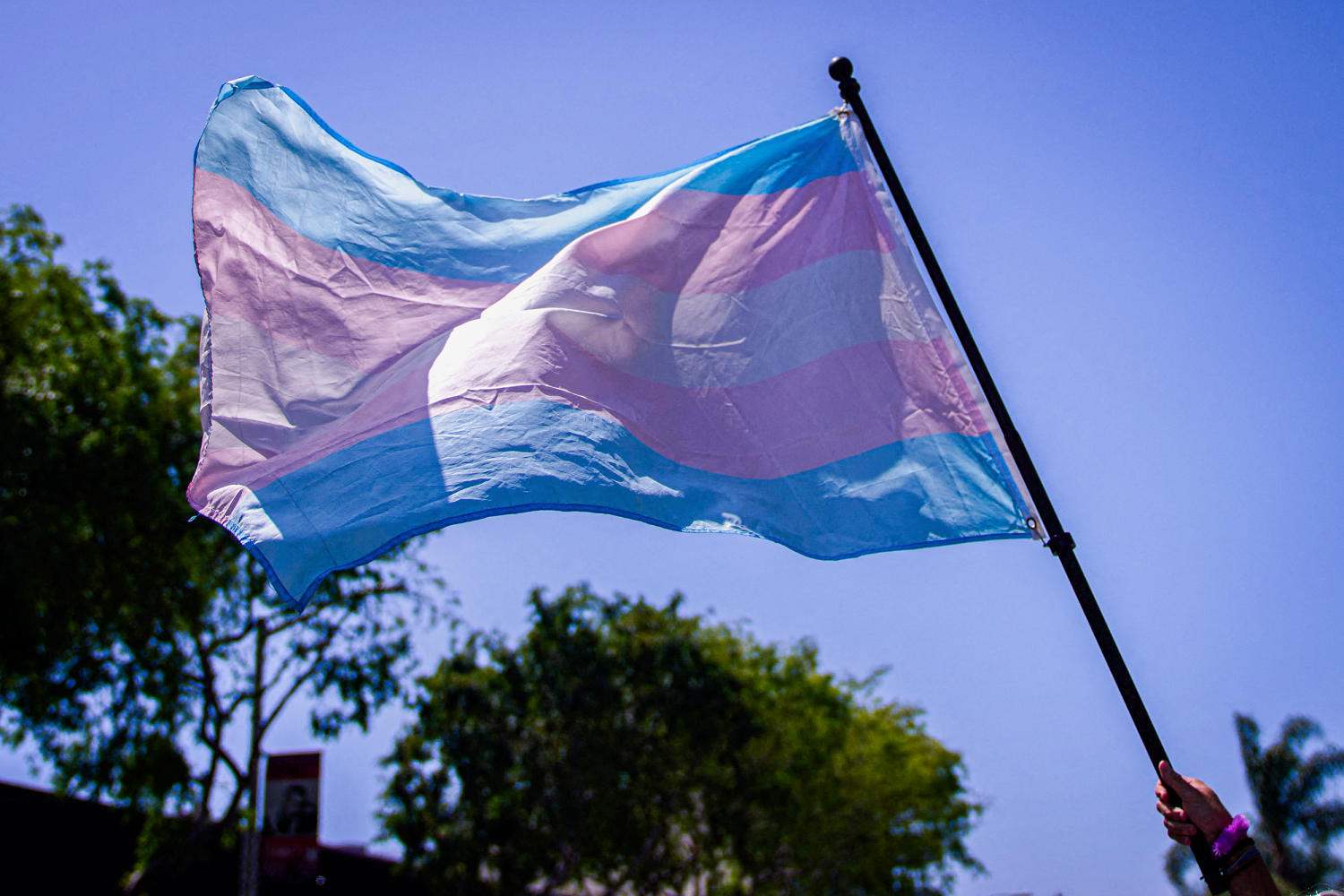
The U.S. Olympic and Paralympic Committee updated its policies to say it will comply with President Donald Trump’s executive order banning transgender women from competing in women’s sports.
The committee made the change in an updated “Athlete Safety Policy,” which does not mention the word “transgender” in any of its 27 pages. However, the document, dated June 18 but posted quietly on the USOPC’s website Monday, includes language saying the committee will comply with Trump’ s order.
“The USOPC will continue to collaborate with various stakeholders with oversight responsibilities, e.g., IOC, IPC, NGBs, to ensure that women have a fair and safe competition environment consistent with Executive Order 14201 and the Ted Stevens Olympic & Amateur Sports Act,” the document says.
Executive Order 14201 is otherwise known as Trump’s “No Men in Women’s Sports Executive Order.”
U.S. Olympic & Paralympic Committee CEO Sarah Hirshland and President Gene Sykes acknowledged the update in a letter to the Team USA community, which was obtained by NBC News.
“As a federally chartered organization, we have an obligation to comply with federal expectations,” they said. “The guidance we’ve received aligns with the Ted Stevens Act, reinforcing our mandated responsibility to promote athlete safety and competitive fairness.”
The updated policy “emphasizes the importance of ensuring fair and safe competition environments for women,” with all national governing bodies required to update their policies to align with the updated guidelines, they added.
It’s unclear whether any Olympians would be banned from competition for the 2028 Olympics under the updated policy.
American middle-distance runner Nikki Hiltz, who is nonbinary, would presumably not be affected by the ruling because they were assigned female at birth. Hiltz finished seventh in the women’s 1,500-meter race in the 2024 Paris Games.
No athlete has won an Olympic medal while competing as an openly transgender woman.
Caitlyn Jenner came out as transgender decades after she won gold in the men’s decathlon at the 1976 Montreal Games. The first openly transgender woman to compete at the Olympics was Laurel Hubbard, a New Zealand weightlifter who failed to make the podium at the 2020 Tokyo Games.
Transgender athletes’ participation in sports has become a divisive issue in recent years, with critics largely focusing on trans girls and women. Trans competitors who were born male, critics contend, have a physical advantage over those who were born female.
But transgender athletes make up only a small proportion of the overall competitive landscape.
NCAA President Charlie Baker testified before a Senate panel in January that he knew of fewer than 10 transgender collegiate athletes among the 544,000 currently competing.
More than 400 athletes signed a letter last year asking the NCAA not to ban transgender athletes from competition, urging it to be on the “right side of history.”
“As athletes, we know firsthand that sport has the power to change lives,” the letter said. “Allowing transgender athletes within the NCAA to participate in the sports they love as who they truly are alongside their teammates fulfills the true spirit of Olympism we all ascribe to.”
The letter expressed concerns that anti-trans legislation is “largely fueled by propaganda and deception” and that it failed to address actual threats to women’s sports. It linked to a study from the Canadian Centre for Ethics in Sport that found transgender women “who have undergone testosterone suppression have no clear biological advantages over cis women in elite sport.”
There are already rules about an athlete’s testosterone levels. Transgender runner CeCe Telfer was deemed ineligible to participate in the 400-meter hurdles at the Paris Games last year because she failed to meet hormone-level standards.
The United States has made numerous policy changes since Trump’s inauguration this year targeting transgender people, including bans on transgender girls and women in women’s sports.
Trump’s administration has changed passport-issuing policies to require that gender markers match people’s assigned sexes at birth. Federal prisons were ordered to move transgender women into men’s facilities, despite advocates’ voicing concerns for their safety in such situations.
Transgender people have also been banned from military service, forcing service members with years of experience and specialized training to leave their positions.


